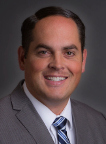Michael A. Kruse
Capital West News
SALT LAKE CITY– A bill to create a white collar crime registry, aimed particularly at affinity fraud, is headed to the house floor.
HB 378, sponsored by Michael McKell, R-Spanish Fork, would set up a “white collar crime registry” on the Attorney General’s website. The bill passed through the House Law Enforcement and Justice Committee unanimously.
Even though the information is publicly available, the way that it’s organized is not efficient, McKell said. This bill would create a one-stop shop on the website of the Attorney General’s office that would enable users to discover whether solicitors have been involved in white collar crime.
As he a lawyer, he has seen the same people repeatedly commit fraudulent acts, McKell continued. He wants to organize the information on the website to better protect Utah residents.
The website would maintain a record of people convicted of financial fraud in the state of Utah during the previous ten years. Anyone convicted of a second-degree felony or higher would be included on the list.
Although a first offense would result in a ten-year inclusion on the list, a second offense would bring an additional ten-year period regardless of when it occurred. A third-time offender would remain on the registry for life. The white-collar registry would include the party’s name, date of a birth, and a recent photo.
However, there is a procedure for early removal from the list. It includes a series of steps by the felon, including completing restitution for the victims.
“One of the key components of this bill is, to get off the registry you have to pay back the money you stole.” McKell said. In his own experience, McKell has found it difficult getting victims their money back.
Unlike the sex offender registry, the white collar crime registry would not be part of a national campaign.
David Sonnenreich, Director of the Markets and Financial Fraud Division of the Attorney’s General office said that financial fraud is a bigger problem in Utah than in other states. Sonnenreich pointed to what is known as “affinity fraud” as one of the more common forms. Affinity fraud happens when people take advantage of members who belong to identifiable groups such as religions or places of employment. Sonnenreich cited a case he prosecuted where a pilot was trying to commit fraud against other pilots.
Rep. Kay McIff, R-Richfield, noted that it is important to not paint with too broad a brush. “Lists must be done with great care on the front end and the back end.”
Rep. McKell responded that he has worked with the Attorney General’s office to make sure that the law is narrowly tailored and that only the worst of the worst be included in the database.




